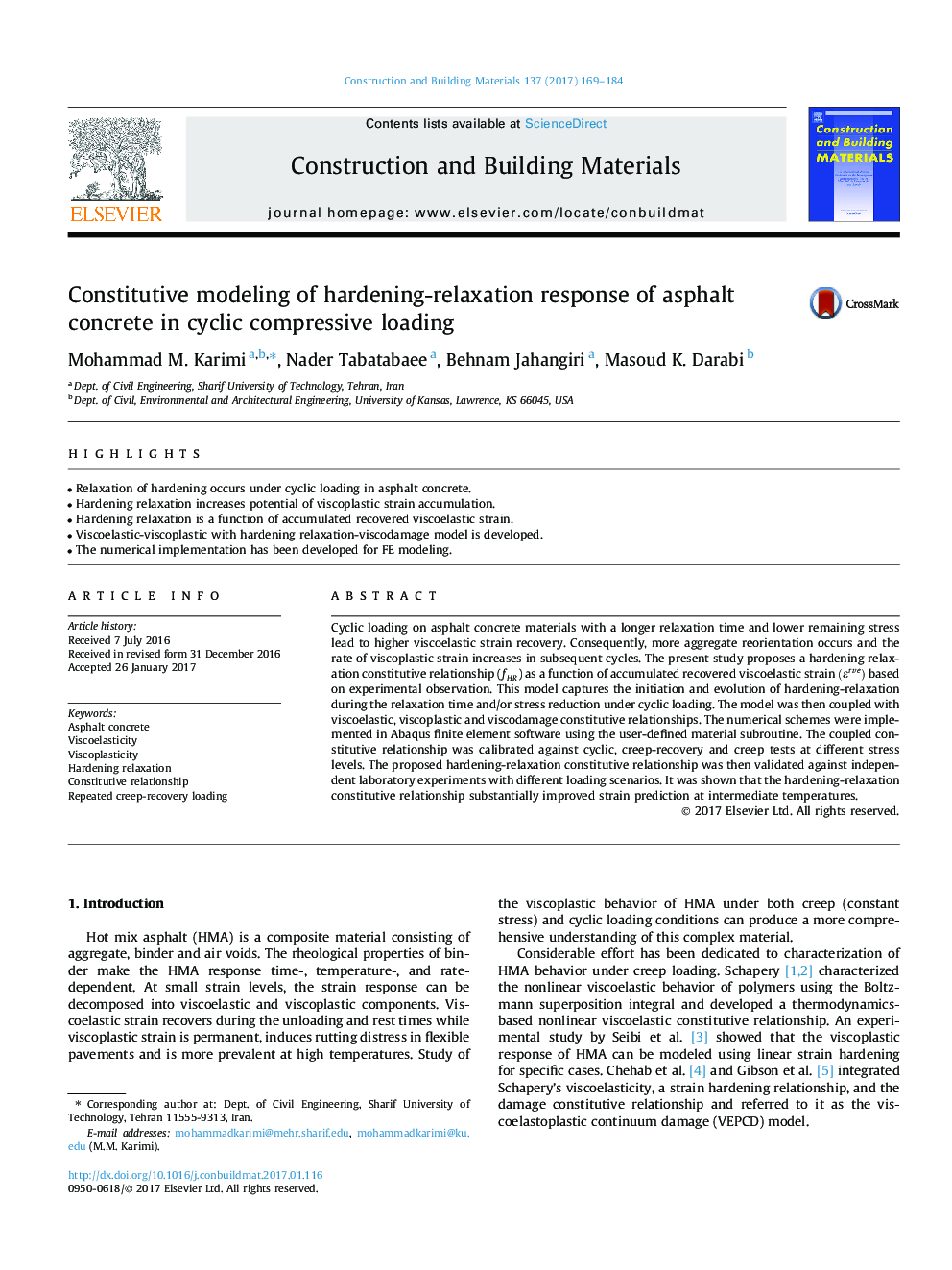| Article ID | Journal | Published Year | Pages | File Type |
|---|---|---|---|---|
| 4913436 | Construction and Building Materials | 2017 | 16 Pages |
Abstract
Cyclic loading on asphalt concrete materials with a longer relaxation time and lower remaining stress lead to higher viscoelastic strain recovery. Consequently, more aggregate reorientation occurs and the rate of viscoplastic strain increases in subsequent cycles. The present study proposes a hardening relaxation constitutive relationship (fHR) as a function of accumulated recovered viscoelastic strain εrve based on experimental observation. This model captures the initiation and evolution of hardening-relaxation during the relaxation time and/or stress reduction under cyclic loading. The model was then coupled with viscoelastic, viscoplastic and viscodamage constitutive relationships. The numerical schemes were implemented in Abaqus finite element software using the user-defined material subroutine. The coupled constitutive relationship was calibrated against cyclic, creep-recovery and creep tests at different stress levels. The proposed hardening-relaxation constitutive relationship was then validated against independent laboratory experiments with different loading scenarios. It was shown that the hardening-relaxation constitutive relationship substantially improved strain prediction at intermediate temperatures.
Related Topics
Physical Sciences and Engineering
Engineering
Civil and Structural Engineering
Authors
Mohammad M. Karimi, Nader Tabatabaee, Behnam Jahangiri, Masoud K. Darabi,
